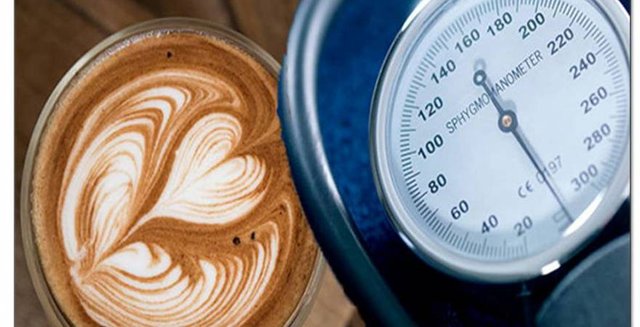Coffee And Its Connection With Blood Pressure
Consumed all year round and all around the globe, coffee is an extremely popular beverage and needs no introduction. It is loved by people all over the world and is enjoyed in as many ways as there are cultures and cuisines. Coffee fans keep growing all over the globe especially with the cafeteria culture where coffee is prepared and presented in so many ways and there are so many choices – green, black, latte, mocha, frappe, espresso, cappuccino, and iced variants of these all; the menu just keeps going longer and the varieties wider.
While tea and coffee are the most liked and consumed beverages, and teas are also used in similar ways as coffee, but interestingly, there are hard to find tea drinkers that do not like coffee, despite debates going on about its effects on blood pressure and sleep. People say that drinking coffee makes them feel more alert, active and fresh. It is actually true that coffee has certain components that affect the nervous and the cardiovascular systems in such ways that the person feels energized and more ‘awake’. This is the reason it is consumed by people before work and school, and especially before meetings and examinations.
What is that component in coffee that makes it a ‘stronger’ choice compared to tea, and also makes it debatable especially when it comes to its effect on health (and disease)? Why are people advised not to over-consume coffee, especially in households where high blood pressure has a trend or a history? Let us find out in the following section.
What Is It In Coffee That Affects Blood Pressure?
The distinct properties of any food item, such as its aroma, taste or effect on mood and the body depend on what biochemical compounds are present in them. For example, chocolates are loved by everyone because they contain theobromine, which is also found in tea and gives it its distinct taste and flavor. So the key compound in coffee that is responsible for its stimulating effect is caffeine. Caffeine is found in not just coffee but also tea and cocoa. It activates the nervous system and that’s why we feel alert after having any food item that contains caffeine. It occurs naturally in these plants and is therefore called a natural stimulant. It has been observed that people who drink coffee regularly or frequently are less affected by the caffeine present in it because they tend to develop a kind of tolerance or habit for it.
The Mechanism Of Blood Pressure
‘Blood Pressure’; we have heard this term every now and then, especially when a few ‘health conscious’ adults gather over for a little chit chat or for tea, no family talk session can ever finish without the mention of blood pressure. Why? Because abnormal blood pressure has become a common disorder associated with modern lifestyle. Almost every other person has been diagnosed with high blood pressure, and then it becomes a family concern. What is blood pressure, and does it actually get high or low depending on what we eat?
Blood pressure is the pressure exerted by circulating blood on to the vessels carrying it throughout the body. It is measured in mmHg, the unit of pressure, with its average values being considered 120/80 mmHg for normal adults. And, yes, it is definitely affected by our diet and lifestyle. But specifically for beverages containing caffeine, blood pressure instantly boosts up primarily because it increases nervous activity and then increases the hart heart rate. As a consequence blood pressure is felt to be increased.
So, Should You Cut Back On Coffee?
The daily dietary requirements may slightly vary for each individual but it is a good idea to consider general limits regarding consumption of stimulants, therefore, it is recommended that every healthy person consume no more than 300 mg of caffeine in a day. One cup of medium strength coffee prepared with instant soluble coffee powder contains around 50 mg of caffeine. So if you drink about two to three such cups per day even with slightly increased strength of the solution, it is well within the limits of caffeine consumption in healthy, adult individuals.
So, even for people who are already on the verge of developing high blood pressure or other heart diseases, limited consumption of coffee is safe as long as it is not overdone or paired with unhealthy lifestyle practices such as consumption of less fresh and raw foods, more packed and processed foods, and lack of physical activity. Studies also suggest that although instant effects of coffee may seem hazardous on health but its long term effects are not as bad, they can rather be considered benefits, because coffee contains surplus antioxidants that can improve heart health and reduce oxidative stress in the body, and hence minimize damage caused by degeneration.
People, especially the health conscious ones, consider ditching their coffee for other beverages like herb teas and fake coffee mixes such as chicory. If you have multiple problems and still don’t want to give up coffee, you could consider replacing your regular coffee with a decaffeinated one, since its caffeine content is removed while processing, with its taste kept safe.
Conclusion:
It is usually thought that the nutritional values of foods become lesser as their taste increases. It is not true; naturally occurring foods have such great tastes, flavors and varieties that they can easily defeat fast and processed foods. Such a food is coffee, which can provide countless health benefits. The only important point is to take care not to cut out its nutritional benefits by spoiling it with cream, milk and sugar. Therefore, it can be concluded that coffee definitely has an instant effect on blood pressure and alertness, but this doesn’t specifically harm people with existing conditions of hypertension. It should be consumed with care because wrong timings or portion sizes can interfere with sleep.
